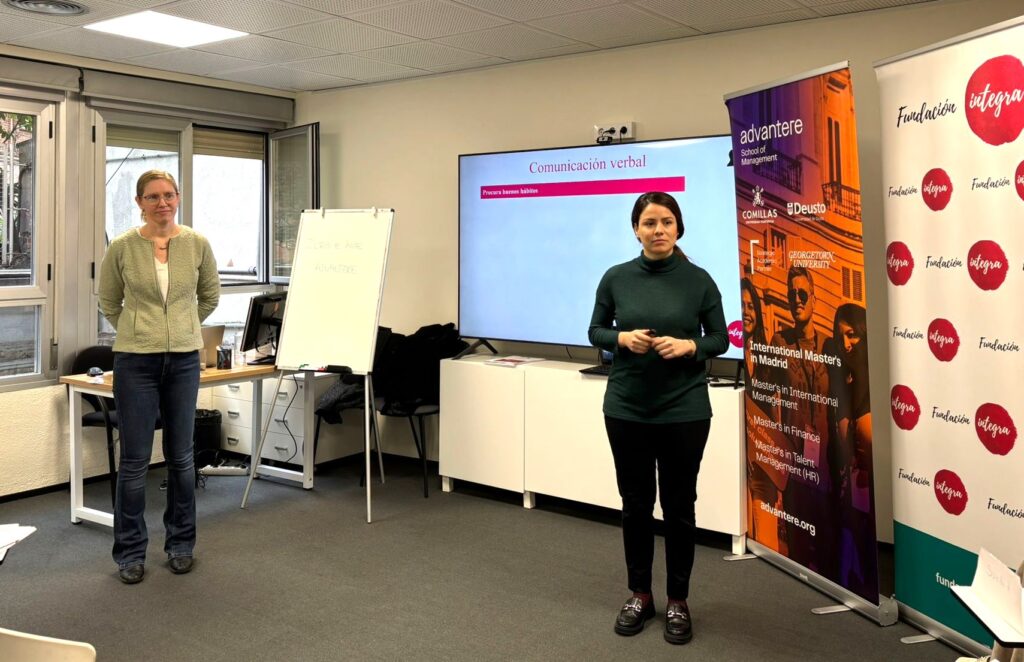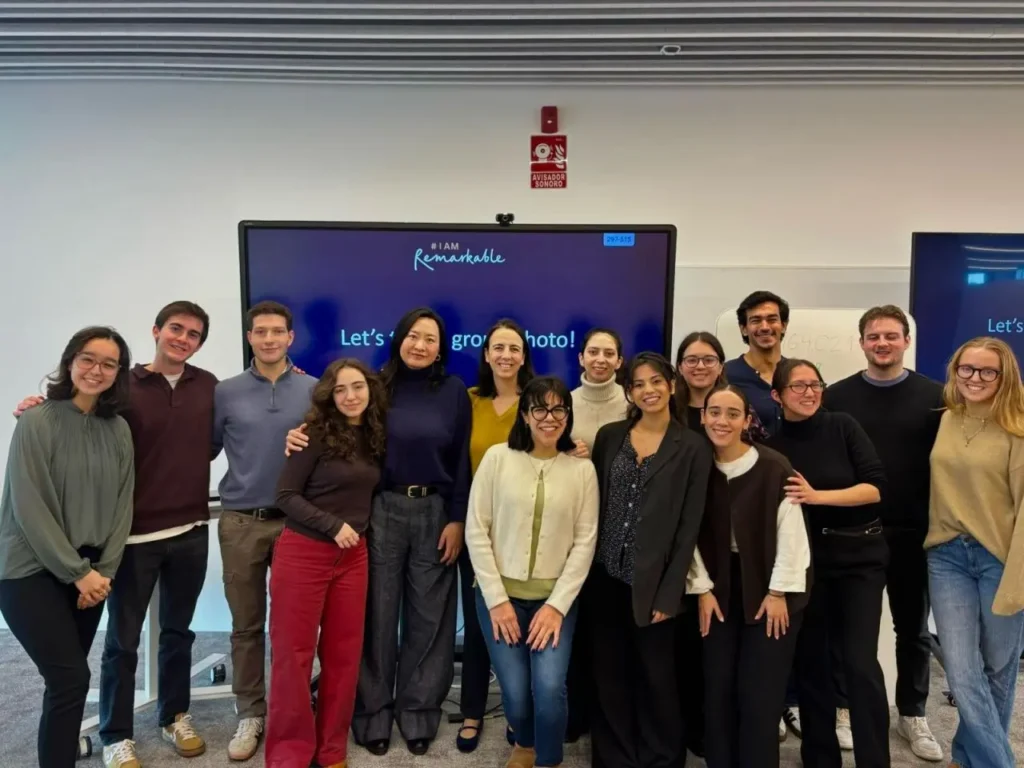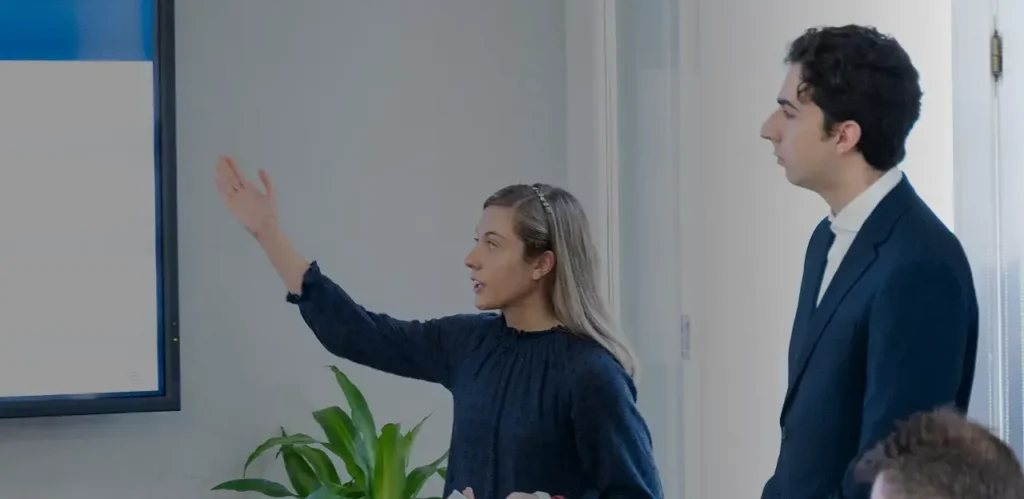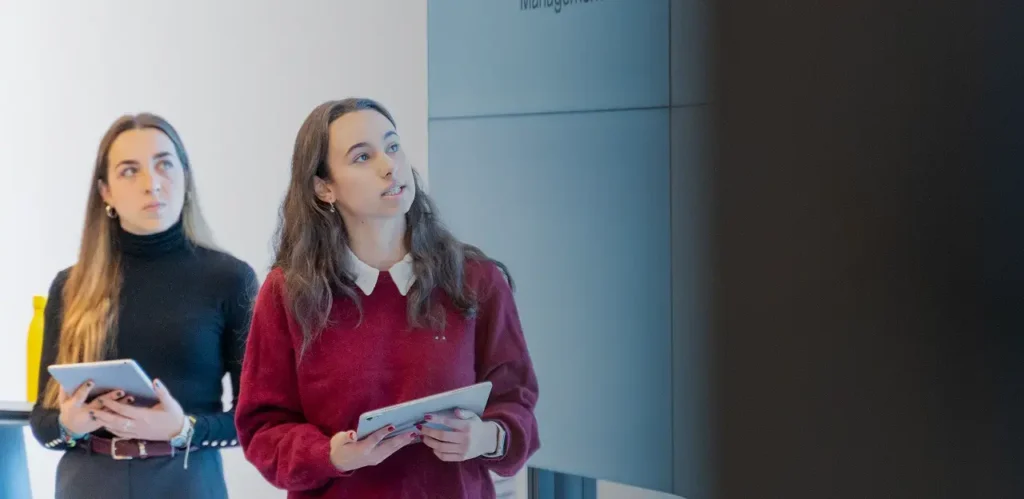On February 27, Advantere School of Management hosted a timely discussion on Economic Security in the Trump Administration, in collaboration with the Georgetown Club of Spain. The debate featured distinguished speakers: Juan Luis Manfredi, Professor of Journalism and International Studies at the University of Castilla-La Mancha (moderator); Rubén López Rivas, Director of the Multilateral Business Development Unit at Deloitte Spain; and Alicia Coronil Jónsson, Chief Economist at Singular Bank and Board Member at Singular Asset Management SICG.
The Importance of Economic Security in the Trump Administration
Economic security has become a fundamental pillar of global power dynamics. Under the new Trump administration, policies are expected to shift towards a MAGA-nomics approach, focusing on American business interests and reshaping global economic relations. The debate explored key themes such as energy policies, manufacturing shifts, and international trade strategies, highlighting how economic security is now a strategic tool for national and international stability.
Key Topics Discussed
The Global Shift: From Globalization to De-Globalization
Juan Luis Manfredi set the stage by outlining the broader geopolitical landscape. With Trump securing both the Senate and the House, there is speculation about a new era of economic policy—a «MAGA-nomics» approach prioritizing American business interests. Discussions centered on energy policies, manufacturing shifts (microchips and data centers), and foreign relations, emphasizing the increasing role of economic security as a strategic tool.
Alicia Coronil Jónsson expanded on this by reflecting on the global economic transformation. She highlighted the «5Ds» she coined in 2022, focusing on the disruption of global order and de-globalization, which were once debated but have now become central issues. The current era, she noted, mirrors the 1920s in terms of geopolitical shifts, bringing Europe into a position where strategic independence and defense cooperation are more critical than ever.
The Emerging Tripolar World Order and Economic Security
The debate explored the rise of a tripolar world order, where the United States, China, and Russia emerge as dominant geopolitical forces. This shift poses challenges for European economic and political strategy, as Europe seeks to build a more self-reliant defense and economic structure.
According to Coronil Jónsson, China’s strategic silence in the face of global disruptions suggests it is positioning itself as an alternative partner for Europe. Meanwhile, the U.S. is expected to reshape multilateral banking policies, potentially reducing funding for global development initiatives and shifting its economic focus towards national priorities.
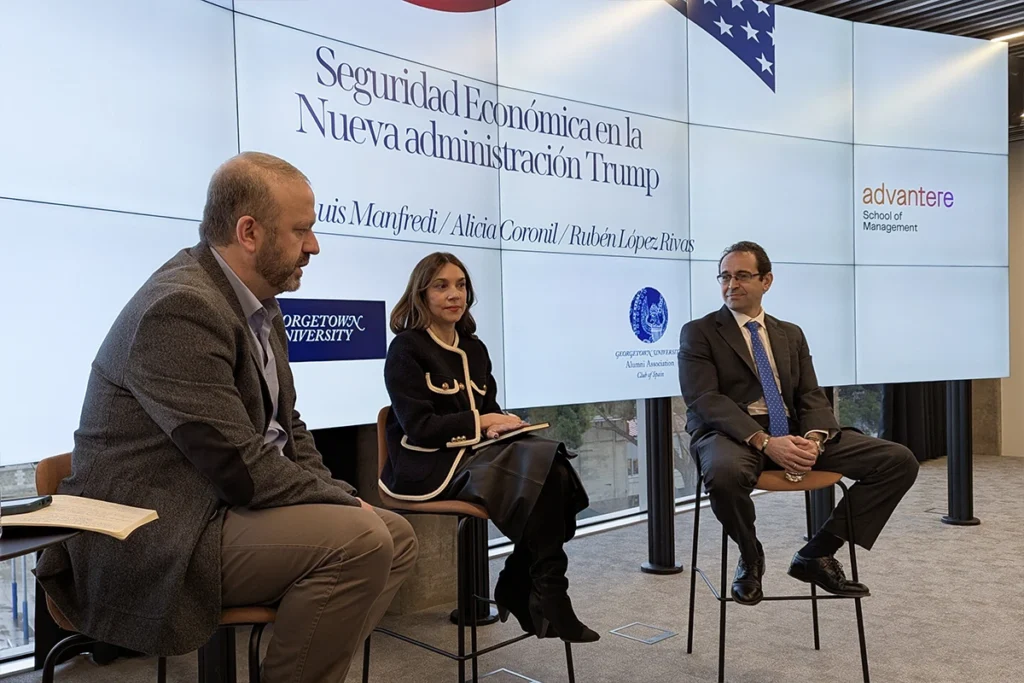
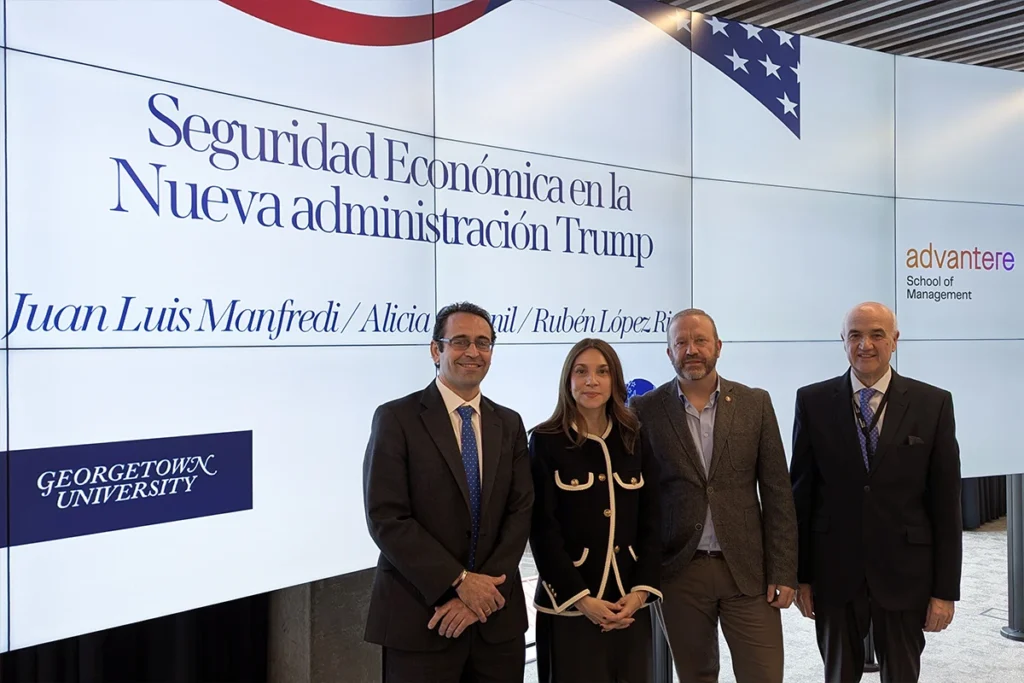
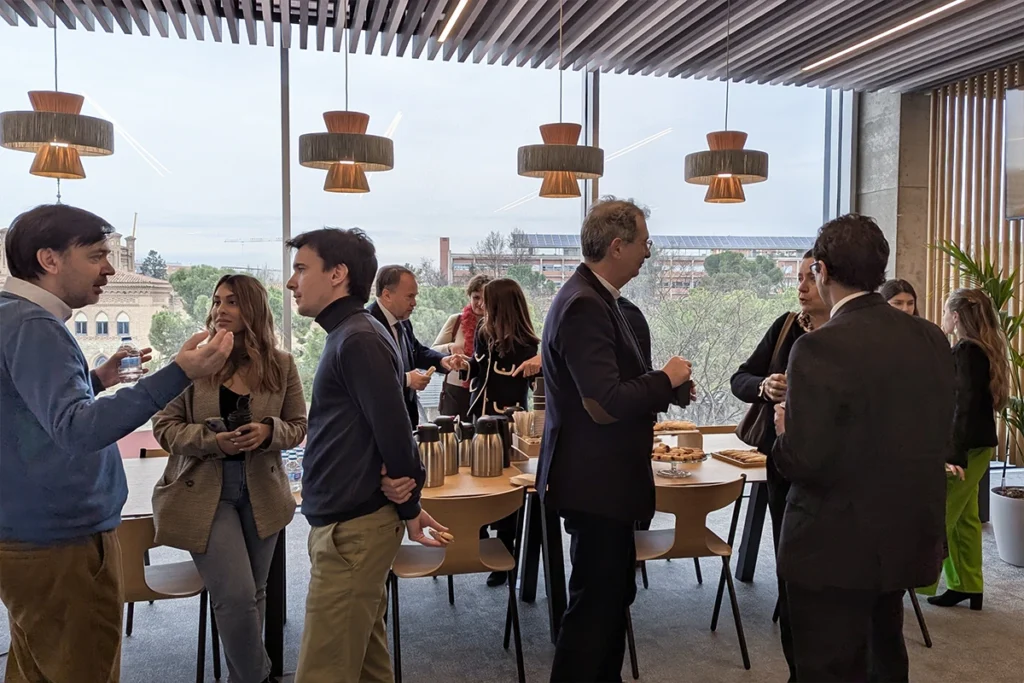
Industrial and Financial Implications for Economic Security
Rubén López Rivas provided insights into how American industrial and financial policies may evolve under Trump. He noted significant potential changes in multilateral banking, with speculation that the U.S. may reduce its contributions to international development banks, leading to restructuring efforts such as downsizing staff, deprioritizing climate and inclusion agendas, and reviving fossil fuel investments.
From an industrial perspective, U.S. policies may enforce stricter regulations on Chinese companies, affecting their participation in global markets. The conversation also highlighted China’s response, including the potential development of its own international development bank, modeled after the U.S. Agency for International Development (USAID), to expand its influence in emerging economies.
The Role of Europe: Challenges and Opportunities
Europe faces a critical moment in defining its economic and geopolitical role. The discussion emphasized the need for Europe to avoid substituting U.S. dependency with reliance on China. Instead, there is momentum for strengthening alliances with long-standing strategic partners such as Canada, Australia, Japan, South Korea, and Taiwan.
Another key challenge is industrial restructuring and regulatory balance. While Europe’s strong regulatory framework ensures economic stability, it may also hinder innovation and competitiveness. The panel debated whether a reduction in overregulation could enhance Europe’s ability to compete in high-tech industries, particularly as China’s technological advancements now rival those of the U.S.
Conclusion
The debate underscored that economic security in the Trump administration is now an essential element of global power dynamics. As the world moves towards a tripolar structure, Europe must navigate its role carefully—leveraging its strengths in economic regulation, industrial innovation, and strategic alliances. The evolving economic policies under the Trump administration will play a crucial role in shaping this new landscape, with significant implications for global trade, energy security, and multilateral cooperation.
Advantere: A Hub for Global Dialogue
At Advantere, we believe that meaningful discussions like this are essential. By bringing students, faculty, and partners together with global thought leaders, we create a space where big ideas take shape. The world is changing rapidly, and through conversations like these, we ensure that future leaders are not just prepared for the change—they are ready to shape it.
The event was held in Advantere’s state-of-the-art immersive room at Campus Arrupe. This session is part of the school’s year-round activities designed to enrich students’ experiences by connecting them with professionals from diverse fields. These initiatives aim to provide practical insights, stimulate critical thinking, and expose students to real-world challenges in an engaging environment.


